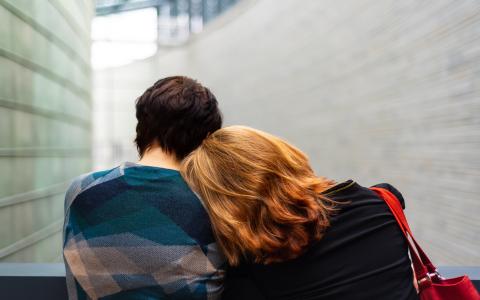
Coronavirus has us all thinking about ways to protect our physical health — wear masks, avoid people, eat well. But don’t forget your mental health. Most of us have made huge changes in our lives over the past month and are facing an uncertain future, all while trying to wrap our heads around a global health and economic mess.
This week, I spoke with Lynn Bufka, a psychologist with expertise in anxiety and stress. (She’s also associate executive director for practice research and policy at the American Psychological Association.) Here’s what she had to say about managing stress during the pandemic. (This interview has been edited and condensed for clarity.)
On how stress affects men vs. women: “If we look at what tends to happen, women are more likely than men to report symptoms of stress. They are more likely to have medical conditions — like depression or anxiety — that get worse with stress. On the flip side, men are more likely to have substance abuse problems, which also are very difficult during times of stress.”
How that could play out during the coronavirus pandemic: “We know that women are often the ones who manage health-related concerns for the family. The data also still suggests that women do more in the household, in terms of the mental aspect of managing a household — ‘we need groceries, we need to have a menu.’ It is quite likely that women are picking up that load currently too, more than male partners. That’s a lot to expect.”
The challenge for Women Rulers whose jobs revolve around coronavirus: “It’s such a hard place here in D.C. because we define ourselves by our work. It’s going to burn us out faster. What I’d like the bosses to hear is: Don’t burn your people out. They need to have some breaks and mental time to think about something other than all of this. To the extent possible, try to negotiate — for example, ‘Unless it’s an emergency, I’m going to be off duty from 8 p.m. onwards.’ You really want to have time to wind down so you can have better sleep.”
Some coping strategies:
- Have a strong foundation: “A decent amount of sleep, nutrition, hydration, some physical activity, having social support.”
- Find things you can control: “You’re bound to have an array of emotions in response to [the uncertainty]. It’s OK to be frustrated or angry or unhappy. You can’t control the big situation of coronavirus or longstanding telework or unemployment, but there might be aspects you can do something about — like whether or not you continue to watch the news until 10 p.m. So, once you acknowledge the emotions, think about what you can do to cope with them, whether it’s sit in the car and have a good cry, or use a journal, or have hot tea or a hot bath, or talk with a friend.”
- Chunk your time: “Think about, ‘OK, I’m going to work for two more days at home doing my routine and then it’s the weekend. And I’m going to kick back and do something I always wanted to do — open that puzzle or start that book. This is going to be a certain amount of time that I’m going to be in this mode, and then I’m going to switch to that mode. That can help.”
- Set limits: “Maybe it’s turning off news alerts on your phone or deciding not to check work email after dinner. Give yourself breaks and time to do other things.”
- Know when to check Instagram and when not to: “Escaping through other people’s lives is great. But the challenge always with social media is comparing and feeling like you’re coming up short. If that’s the feeling you have, walk away from it. Remember that you’ll have your moments. You’ll get to engage in mastering the perfect sourdough. Maybe not now, but someday.”
A silver lining: “This is an opportunity to think about what you really value and then make your decisions around that. You might realize ‘I’ve been on the hamster wheel. I’m glad I’m not running like that.’ When this is over and life goes back to ‘normal,’ you give yourself the choice of whether you want to re-engage in certain activities. Maybe you are no longer interested in that book club or you really did want to get into biking.”
This article originally appeared on Politico.



